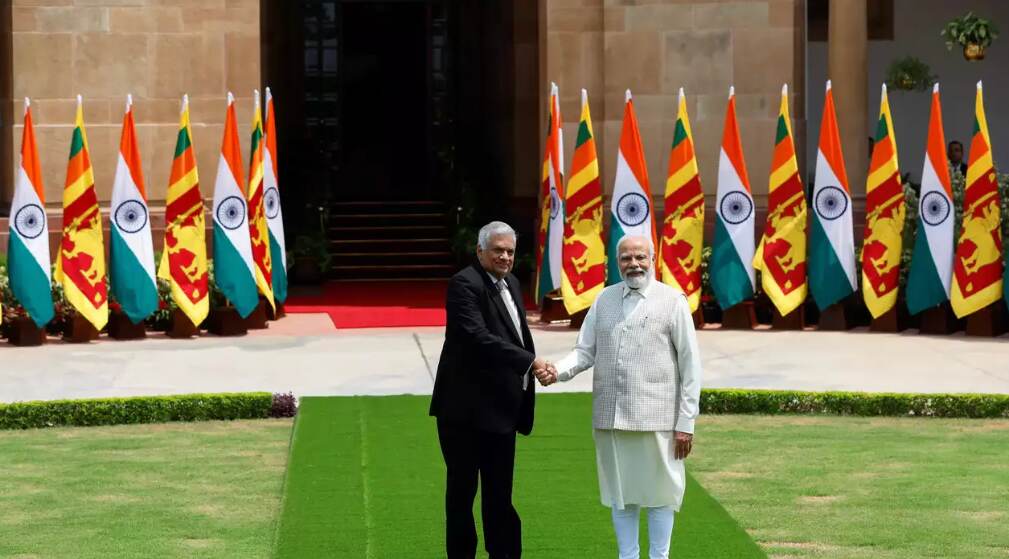Sri Lanka Rejects Implementing 13th Amendment, Igniting Tension with Tamil Community as India Urges Fulfillment
Sri Lanka's ruling party rejects the implementation of the 13th Amendment, which guarantees power devolution to provinces and meets Tamil aspirations. India urges the government to fulfill its commitment to the amendment.
Sri Lanka’s ruling party, the Sri Lanka Podujana Peramuna (SLPP), has rejected the implementation of the 13th Amendment, which guarantees power devolution to the provinces and meets Tamil aspirations.
The General Secretary of SLPP, Sagara Kariyawasam, stated that President Ranil Wickremesinghe has no moral right to implement the amendment without obtaining a fresh mandate from the people.
This rejection reflects the long-standing reluctance of the Sinhalese political establishment to fully implement the legislation, even though it is enshrined in the Sri Lankan Constitution.
Prime Minister Narendra Modi, during a meeting with Wickremesinghe, urged the Sri Lankan government to fulfill its commitment to implement the 13th Amendment and conduct Provincial Council elections. However, the legislation faces opposition from Sinhala nationalists, including the ruling SLPP.
India, along with the international community, has been emphasizing the importance of a political solution in Sri Lanka, especially in light of the country's history of civil war. The UN Human Rights Council has called upon Sri Lanka to fulfill its commitments on devolution of political authority, emphasizing reconciliation and the enjoyment of human rights for all members of the population.
During talks between Modi and Wickremesinghe, both countries unveiled a vision document to expand connectivity and economic ties. Initiatives include connecting electricity grids, discussing an economic and technological cooperation pact, conducting a feasibility study for a petroleum pipeline, and exploring the viability of a land bridge between India and Sri Lanka.
The two sides also signed agreements on the acceptance of the Unified Payments Interface (UPI) application in Sri Lanka and cooperation in the field of renewable energy. The discussions also addressed the issue of the Tamil community's livelihood, with both leaders agreeing to deal with it in a humane manner.
The two sides also agreed to start passenger ferry services and increase air connectivity between the two countries. Modi announced that various projects worth Rs 75 crore will be implemented for the Indian-origin Tamil citizens of Sri Lanka, and India will contribute to the development programs in the northern and eastern regions of the country.
Wickremesinghe expressed his appreciation for India's support during the economic crisis faced by Sri Lanka last year and outlined his vision for economic recovery and sustainable growth. He also shared a comprehensive proposal for furthering reconciliation and power sharing through devolution.
An all-party meeting on the implementation of the 13th Amendment will be convened next week. India has been emphasizing the need for the full implementation of the amendment, as it addresses the Tamils' demand for political autonomy in the Northern and Eastern regions of Sri Lanka.




